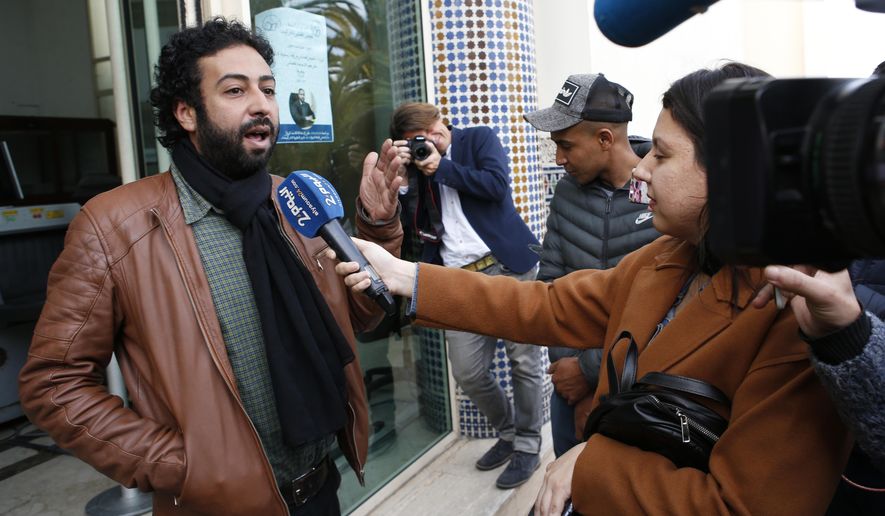RABAT, Morocco (AP) - Amnesty International said Monday that sophisticated telephone surveillance software appears to have been used to spy on a journalist-activist in Morocco, in a continuing crackdown on dissent in the North African kingdom.
The global rights watchdog said the intrusion continued despite a pledge by the Israeli company behind the malware to abide by a set of human rights principles.
In a report, Amnesty said forensic analysis it carried out on the cellphone of Omar Radi indicated that his communications were monitored from January 2019 using technology developed by Israeli hacker-for-hire company NSO Group.
Radi gained prominence last year after he was arrested for a tweet that defended anti-government protesters.
Radi was subsequently put on trial in March this year, accused of insulting a judge with his tweet that slammed prison sentences handed down to protest leaders. Radi was handed a four-month suspended jail sentence and a $50 fine.
Radi was also part of Arab Spring demonstrations in Morocco in 2011 that protested corruption, abuse of power and limits on free speech, and he has since continued to defend human rights.
Amnesty said the surveillance methods it believes were used to spy on Radi’s phone “require either physical proximity to the targets or leverage over mobile operators in the country which only a government could authorize.”
“Because of this, and the continued targeting of Moroccan human rights defenders, we believe Moroccan authorities to be responsible,” Amnesty said.
A government spokesman and the government’s center that monitors IT attacks did not immediately respond to requests for comment.
NSO has come under fire for selling its surveillance software to repressive governments that use it against dissidents. It doesn’t disclose clients, but they are believed to include Middle Eastern and Latin American states. A Saudi dissident has accused NSO of involvement in Saudi journalist Jamal Khashoggi’s killing in 2018. The company says it sells its technology to Israeli-approved governments to help them stop militants and criminals.
The company is also embroiled in legal battles over the spyware. In Israel, Amnesty is asking a court to revoke the company’s export license, preventing it from selling its contentious product abroad, particularly to regimes that could use it for malicious purposes. Last year, Facebook sued the company in U.S. federal court for allegedly targeting some 1,400 users of its encrypted messaging service WhatsApp with highly sophisticated spyware.
Amid the backlash, the company said in September that it would institute a series of oversight measures to ensure adherence and would henceforth evaluate potential clients’ “past human rights performance.”
But Amnesty said Radi’s phone had been targeted just three days after NSO made its human rights commitment and continued into this year.
NSO Group’s flagship malware, called Pegasus, allows spies to effectively take control of phones remotely. Most notably, its spyware was implicated in the gruesome 2018 killing of Khashoggi.
Amnesty’s report said NSO Group “tools are being used in support of Moroccan government’s efforts to persecute people for free expression and clamp down on dissent.”
NSO responded with a statement that said “we take any claim of misuse seriously.”
“We shall immediately review the information provided and initiate an investigation if warranted,” it said.
___
AP journalists John Leicester in Le Pecq, France, and Tia Goldenberg in Jerusalem, contributed to this report.




Please read our comment policy before commenting.